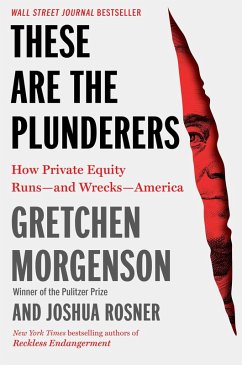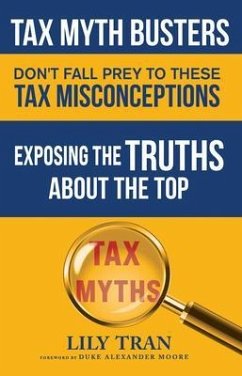
Both of these seem extremely odd (eBook, ePUB)

PAYBACK Punkte
4 °P sammeln!
When he first started his career, Warren only cared about the company's financial situation, he didn't really pay attention to the products the company produced. His patron Graham believed the number told all there was to know; He does not separate standard-goods companies like textiles, which often have weak long-term economic structures, from consumer monopoly companies like Coke, which have strong long-term economic structures. But as Warren began to struggle and run a standard goods company, he soon realized that only exclusive consumer goods companies had a competitive advantage and deliv...
When he first started his career, Warren only cared about the company's financial situation, he didn't really pay attention to the products the company produced. His patron Graham believed the number told all there was to know; He does not separate standard-goods companies like textiles, which often have weak long-term economic structures, from consumer monopoly companies like Coke, which have strong long-term economic structures. But as Warren began to struggle and run a standard goods company, he soon realized that only exclusive consumer goods companies had a competitive advantage and delivered superior efficiency. Graham is willing to buy any stock as long as it is sold at a cheap price. Warren only buys stock in monopolistic consumer goods companies that have a competitive advantage, and he doesn't have to wait for a bargain. A reasonable price is enough, and if you just hold them long enough, you can become a billionaire.
WORD NO. 40
"When principles age, they are no longer considered principles. "
*
Warren woke up one morning and realized that the investing principles he learned from Graham were no longer relevant. Graham advocates buying cheap stocks of companies regardless of their economic structure. This strategy worked well in the 40s and 50s, but it no longer works when a large group of investors take on the strategy - it becomes increasingly difficult to find the golden eggs. Instead of following this well-trodden path, Warren jumped off the bandwagon and proposed a philosophy of investing in superior companies with sustainable competitive advantages, as long as their shares were sold at reasonable prices-then Then he just needs to rely on the rising tide over time and revenue to push the stock price up. This philosophy took him from a rich man to super rich.
A great example of this philosophy is that when he invested in Coca-Cola, he paid the equivalent of twenty times the earnings per share. An old Warren wouldn't have spent this kind of money because Graham's valuation techniques showed the price was too high. But a new era Warren sees that this is a very reasonable price that will bring him billions. Sometimes it would be nice if a leopard could change its skin color.
WORD NO. 40
"When principles age, they are no longer considered principles. "
*
Warren woke up one morning and realized that the investing principles he learned from Graham were no longer relevant. Graham advocates buying cheap stocks of companies regardless of their economic structure. This strategy worked well in the 40s and 50s, but it no longer works when a large group of investors take on the strategy - it becomes increasingly difficult to find the golden eggs. Instead of following this well-trodden path, Warren jumped off the bandwagon and proposed a philosophy of investing in superior companies with sustainable competitive advantages, as long as their shares were sold at reasonable prices-then Then he just needs to rely on the rising tide over time and revenue to push the stock price up. This philosophy took him from a rich man to super rich.
A great example of this philosophy is that when he invested in Coca-Cola, he paid the equivalent of twenty times the earnings per share. An old Warren wouldn't have spent this kind of money because Graham's valuation techniques showed the price was too high. But a new era Warren sees that this is a very reasonable price that will bring him billions. Sometimes it would be nice if a leopard could change its skin color.
Dieser Download kann aus rechtlichen Gründen nur mit Rechnungsadresse in A, D ausgeliefert werden.













